The symptoms of prostatitis can make a man's life unbearable. Experienced doctors will help you quickly solve the problem.

Inflammation of the tissues of the prostate gland (prostate) is called prostatitis. The prostate gland is an endocrine organ that affects several processes in the male reproductive system. With its inflammation, there is a violation of urinary function, difficulties with the ability to function, libido and ejaculation. Manifestations of prostatitis significantly reduce quality of life, affecting reproductive function. According to statistics, today prostatitis is the most common disease of the genitourinary system in men.
Symptoms of Prostatitis
Symptoms of the disease can be both acute and barely visible. If you notice you have the following symptoms, even if mild, it is better to consult your doctor immediately to confirm or refute the diagnosis.
- Microphonic disorders: frequent urination, especially at night, weak or interrupted flow, pain, accompanied by difficulty urinating.
- Pain in the lower abdomen, leading to the anus, scrotum, perineum.
- Decreased libido, impaired sexual ability or dysfunction.
- Change in consistency, color, quantity of ejaculate, difficulty ejaculating.
When recognizing the signs and symptoms of prostatitis in men, do not self-medicate and do not use recommendations from the Internet, at best they will not help you, at worst. harm you. In addition, untimely access to a doctor can aggravate the condition.
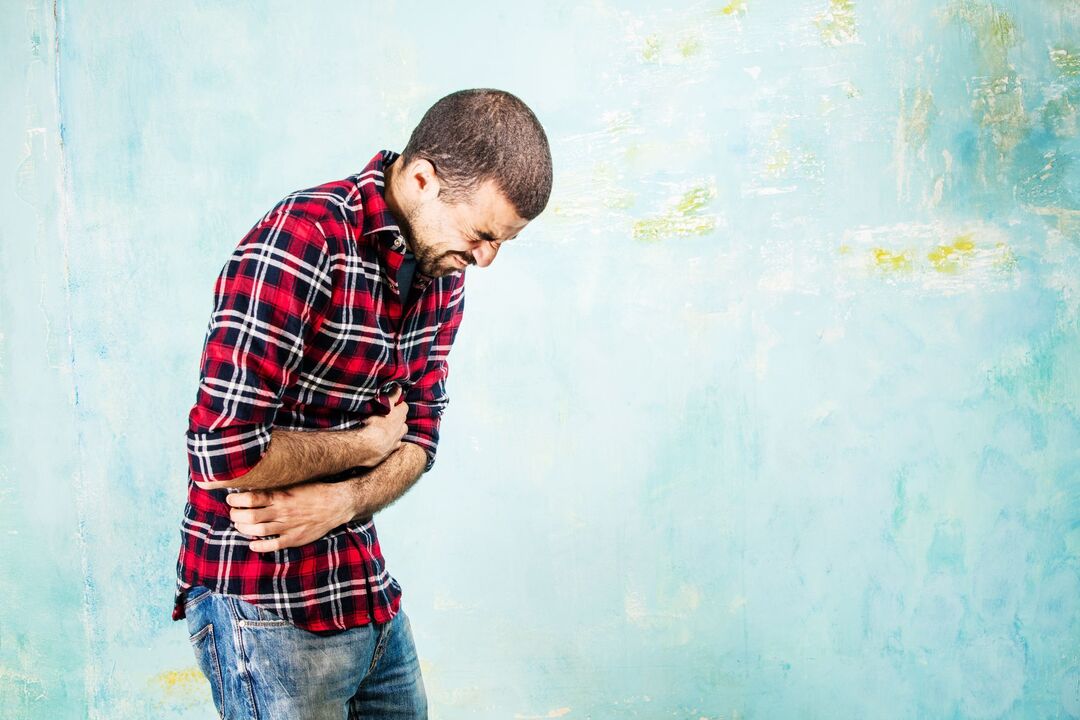
Signs of different types of prostatitis
By the nature of the flow, there are:
Typical symptoms of acute prostatitis:
- fever, a sharp increase in body temperature (up to 40 degrees);
- severe headache, weakness, fatigue, irritability;
- pain in the groin, back, when urinating, frequent urination;
- changes in the quality of urine (becoming cloudy, viscous, bloody), abnormal discharge from the urethral canal.
If you do not seek medical help in time, acute prostatitis can cause complications:
- abscess in the body of the prostate gland;
- inflammation of the seminal vesicles (inflammation of the seminal vesicles);
- inflammation of the seminal vesicles (inflammation of the seminal vesicles);
- the appearance of scars and adhesions in the gland and spermatic cord;
- stagnation process in the tissues of the prostate gland;
A feature of the chronic form is blurring of the clinical manifestations and symptoms of prostatitis. The presentation resembles the acute form, but is of a lethargic nature. The cause of the pathology, as a rule, is bacterial prostatitis, prostatitis (stagnation of blood in the vessels).
Diagnosis and treatment
Prostatitis has a characteristic clinical picture. An experienced urologist can easily establish a diagnosis after performing physical examination, examination and palpation, laboratory and instrumental studies (general urinalysis and bacteriology andblood tests, blood tests for PSA, sampling of prostate secretions, spermography, ultrasound).
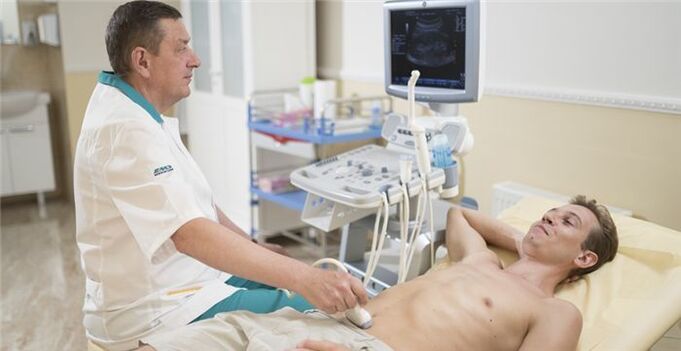
In the event that the patient promptly visits a specialist, the treatment of prostatitis involves an integrated approach and gives excellent results.
The modern clinic is equipped with modern high-tech equipment for the diagnosis and treatment of diseases of the genitourinary system. Sophisticated and qualified doctors will provide the most appropriate and effective support for you.
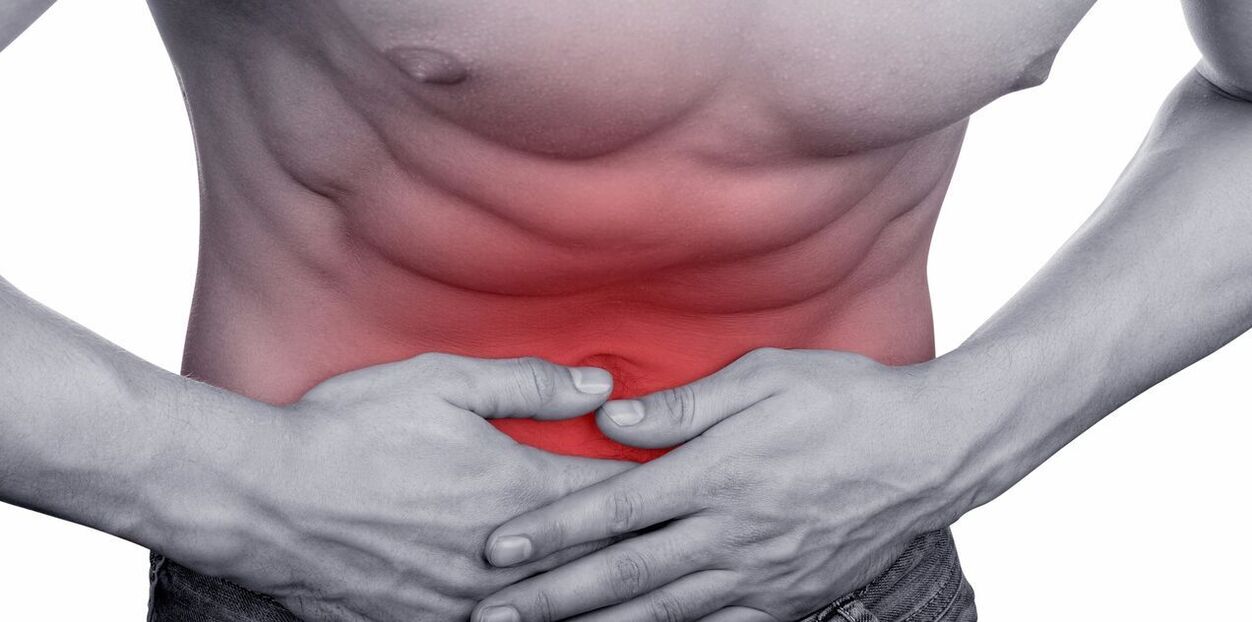
Symptoms of prostatitis: pain, burning, discharge, pain, bowel incontinence
Symptoms of prostatitis usually fall into three categories:
- violation of urination: difficulty, frequent, nocturia.
- pain symptoms: pain in the perineum, lower abdomen, groin. The pain may radiate to the scrotum or to the sacrum.
- mixed form, in which both dysuria and pain are present.
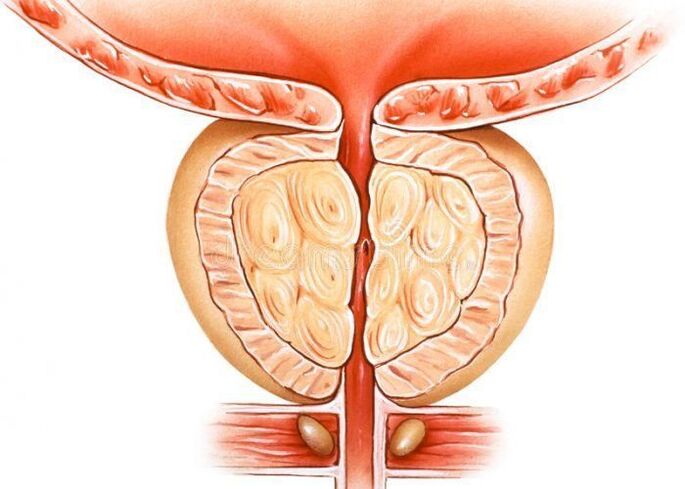
What Causes Prostatitis?
For bacterial prostatitis
Infection enters the prostate from nearby organs: through blood and lymphatic vessels from distant foci of inflammation (tonsillitis, sinusitis, caries).
The most common bacteria detected in prostatitis are: Escherichia coli, Klebsiella, Proteus, Staphylococcus aureus, Enterococcus.
The role of sexually transmitted diseases is discussed: chlamydia, mycoplasma, Trichomonas.
The activity and, therefore, the manifestations of the inflammatory process depend on the characteristics of the microflora, on the state of the pelvic organs, their blood circulation, concomitant diseases and other causative factors.
For non-bacterial prostatitis
Stagnation plays an important role. Violation of blood flow causes swelling, exudation of prostate tissues and facilitates the development of inflammatory processes unrelated to bacterial agents.
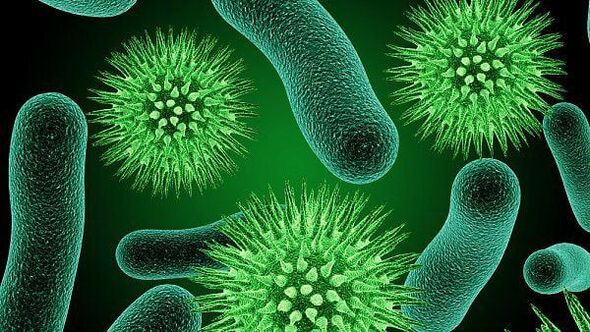
STDs and Prostatitis
The question of the involvement of sexually transmitted infections in the development of prostatitis is widely discussed in medical science. There is no single opinion on this matter.
We consider ourselves to be proponents of a direct link between infection and the occurrence and progression of prostatitis.
Why is prostatitis dangerous?
Although prostatitis is not life-threatening, its chronic progression reduces quality of life.
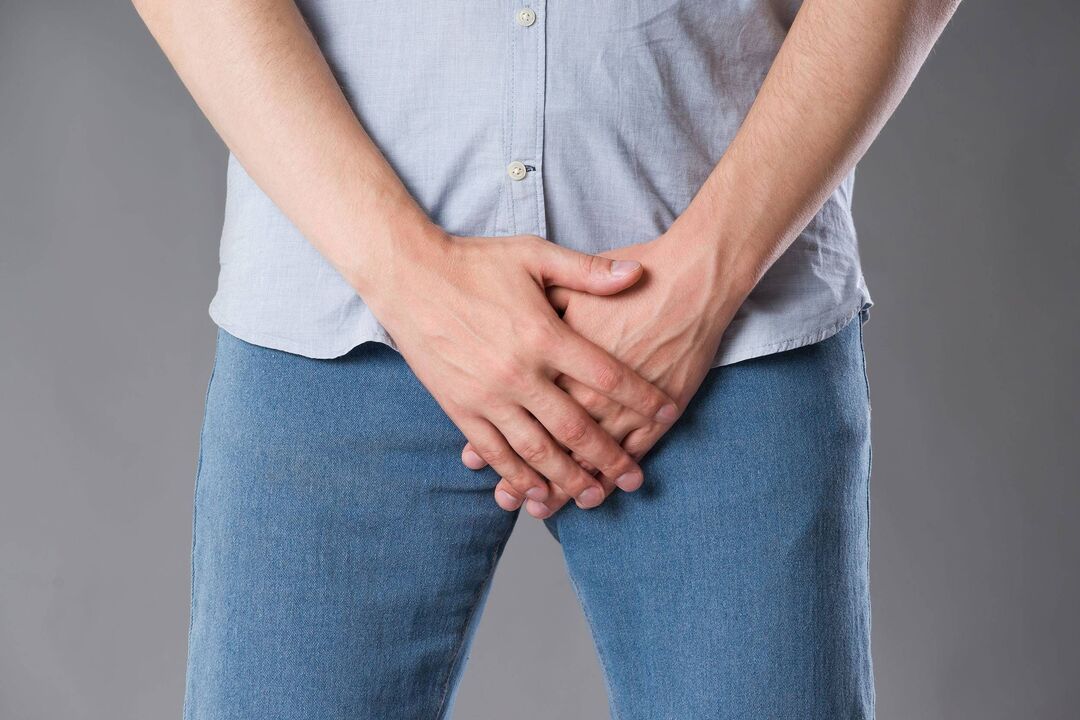
Initiation of prostatitis. How to determine? First sign
The first sign of prostatitis is a change in the nature of urination: difficulty urinating, frequent urination, frequent urination, especially at night. Discomfort while urinating and pain of varying intensity in the groin.
Age with prostatitis? Is this a disease of the young and/or the elderly?
Prostatitis is an inflammatory disease that can affect people of all ages. But adenoma or prostatic hyperplasia is an age-related disease in men over the age of 50 and is associated with the development of a benign prostatic tumor.
Chronic prostatitis. Is there any possibility of a cure?
The presence of a diagnosis of chronic prostatitis means the presence of changes in the structure of the tissues of the prostate gland, which persist for life. Like any chronic disease, prostatitis progresses in alternating periods of exacerbation and remission - periods in which the patient is not bothered. With the right treatment and lifestyle, the period of remission can be very long and complaints will never bother the patient again.
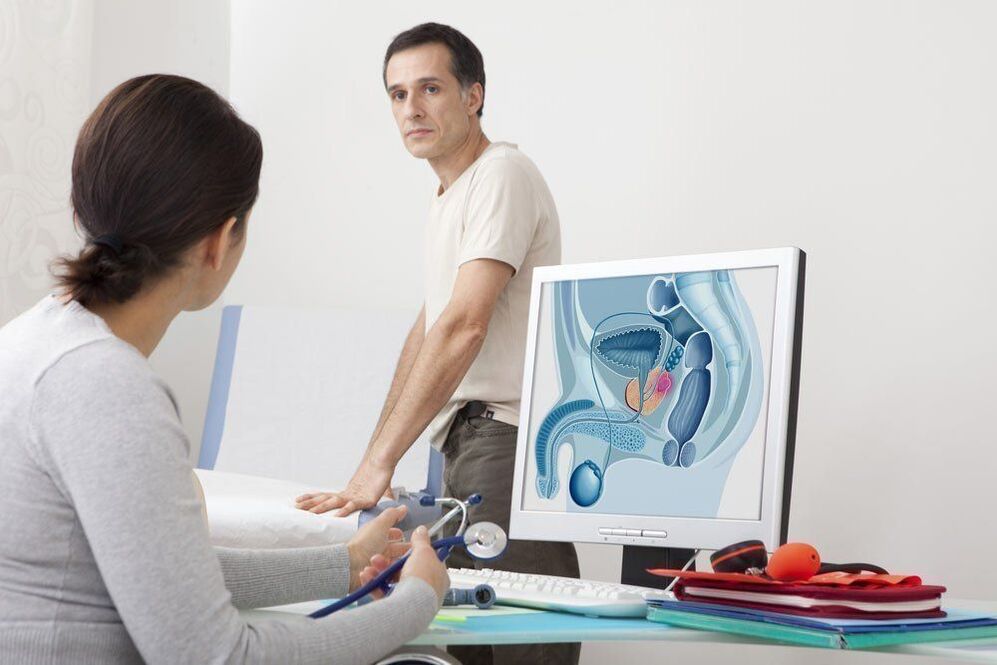
Bacteria and other types of prostatitis
There are different classifications, the most commonly used one developed by the American Institutes of Health in 1995:
- Type IAcute prostatitis.
- Category II.Chronic bacterial prostatitis.
- Type III.Nonbacterial prostatitis / Chronic pelvic pain syndrome - no obvious signs of infection and lasts 3 months or more.
- Sub-Category III A.Chronic inflammatory pelvic pain syndrome (leukocytes in the prostate gland secrete and release pathogens).
- Subcategory III B.Non-inflammatory chronic pelvic pain syndrome (absence of white blood cells in the prostate gland).
- Category IV.Asymptomatic prostatitis (with leukocytes in the secretions of the prostate gland, but without complaints).
For ease of understanding, classifications can be represented from 3 categories:
Acute prostatitis- Progressive with severe pain, fever, difficulty urinating. In the secret of the prostate - a large number of leukocytes, indicating a clear inflammatory process. Occurs, as a rule, for the first time in this patient. If these symptoms occur in a patient with chronic prostatitis, they are referred to as an exacerbation of chronic prostatitis.
Chronic bacterial prostatitisAs a rule, the symptoms of patients with periodic disturbance are usually less pronounced than in acute prostatitis. At diagnosis, there is also an increase in leukocytes in the secretions of the prostate gland, which can identify the causative agent of inflammation.
The most difficult to diagnose isnon-bacterial prostatitis, or the so-calledchronic pelvic pain syndrome. This is due to the fact that the complaint is very similar to prostatitis, but is associated with diseases of other organs and systems, in which signs of inflammation and pathogenic bacteria cannot be detected: spasms. pelvic muscles, impaired interaction between muscles. of the bladder and its sphincter, anatomical disorders - constriction (narrowing) of the urethra, which leads to inflammation due to increased pressure inside the lobules of the prostate gland.
Who treats prostatitis - a gynecologist or a urologist?
Prostatitis is treated by both urologists and urologists.
A gynecologist is a urologist who specializes in diseases of the male reproductive and sexual fields.
Methods and plans for the treatment of prostatitis
All prostate treatment regimens include drugs: drugs that improve prostate and bladder contraction while relaxing the sphincter.
Good results are obtained with the simultaneous use of drugs and physiotherapy (prostate massage, complex for the treatment of prostatitis).
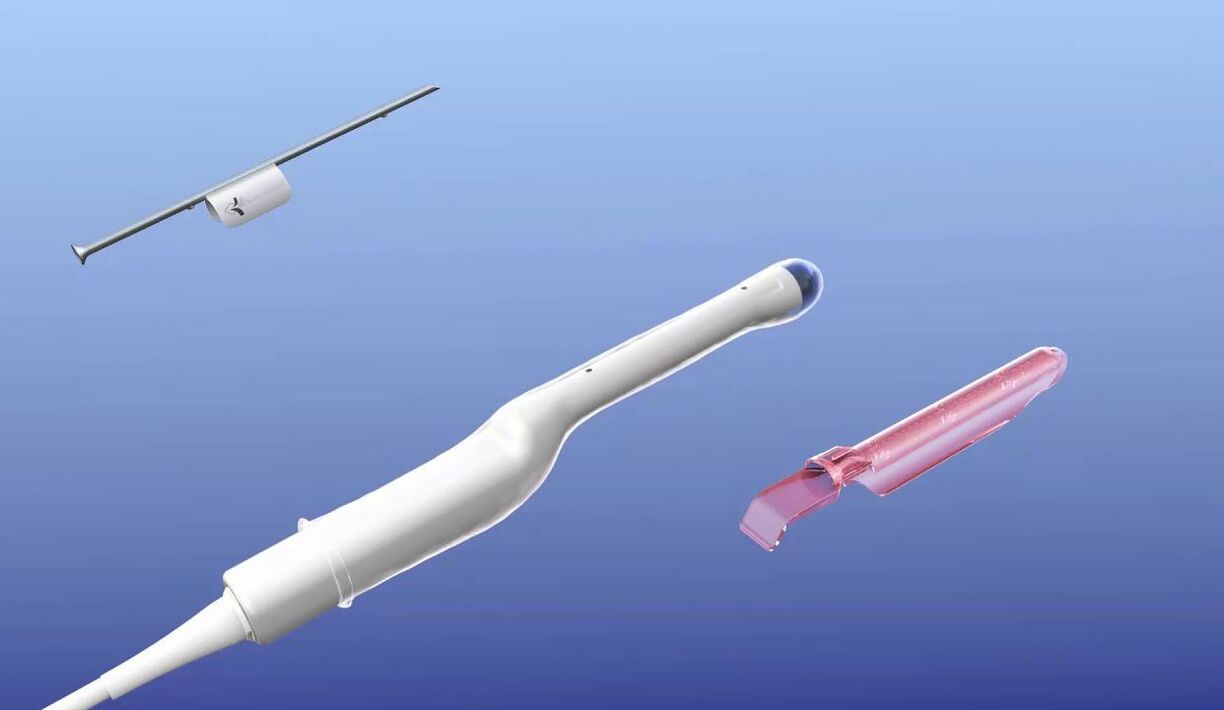
What tests are done for prostatitis?
BecauseDiagnosis of prostatitisA consultation with a urologist (urologist) is required to collect the patient's complaints, history, microscopic prostatoscopy, and ultrasound diagnosis.
For diagnosis, transrectal ultrasound of the prostate gland (TRUS) and prostatic secretions obtained after prostate massage are used for microscopic examination.
In addition, secret seeding of the prostate can be used on the microflora with the determination of the sensitivity of the cultured microflora to antibiotics.
Surgical and surgical interventions for prostatitis
With prostatitis, operations are practically not used. Except for prostate abscess - a process of formation of pus-filled reservoirs.
Can you cure prostatitis on your own?
When symptoms are severe, it is better to be treated by a specialist, the time factor is very important in treatment, as the longer the inflammation goes on, the more likely the organs are damaged. the greater the irreversible change.
But it's better to be on your own, no doctor will do it for you.
Avoiding hypothermia, congestion caused by prolonged sitting, sexually transmitted infections, irregular sex - all these are effective ways to prevent prostatitis.
Prostatitis medicine
Drugs for the treatment of prostatitis are divided into groups according to the mechanism of action:
Antibacterial agent (antibiotic)prescribed only when there is a diagnosis: chronic bacterial prostatitis. The most commonly used are fluoroquinolones, macrolides, and the doxycycline class of drugs.
Alpha blockers:It is prescribed to restore impaired urination, increase the contractility of the bladder, and relax its reactive muscles.
big groupbiological stimulants and herbal preparations.
Only an accurate diagnosis can effectively treat, as there is no universal drug for all types of prostatitis. Usually, patients taking medicine to treat prostatitis, if they have completely different diseases but have similar symptoms.

Nuts, roots, parsley, cucumber, honey, bees, leeches and other folk remedies for prostatitis
Folk remedies for healing have a right to exist, but you must understand that it is very difficult to choose a folk method that is right for you. According to the request for treatment of prostatitis by folk methods, the search engine produced 70 million results.
Folk methods no one investigated for effectiveness. Just because it helped a patient receive such treatment (and whether it helped) doesn't mean it will help you at all.
Exacerbation of prostatitis after treatment. remission, relapse
All chronic inflammatory processes have periods of exacerbation and remission, when nothing bothers the patient. The duration of remission can vary and depends on many factors, including whether the patient is receiving prophylactic treatment. Patients who carry out periodic prophylactic treatment, without waiting for their health to deteriorate, as a rule, exacerbations are less frequent.
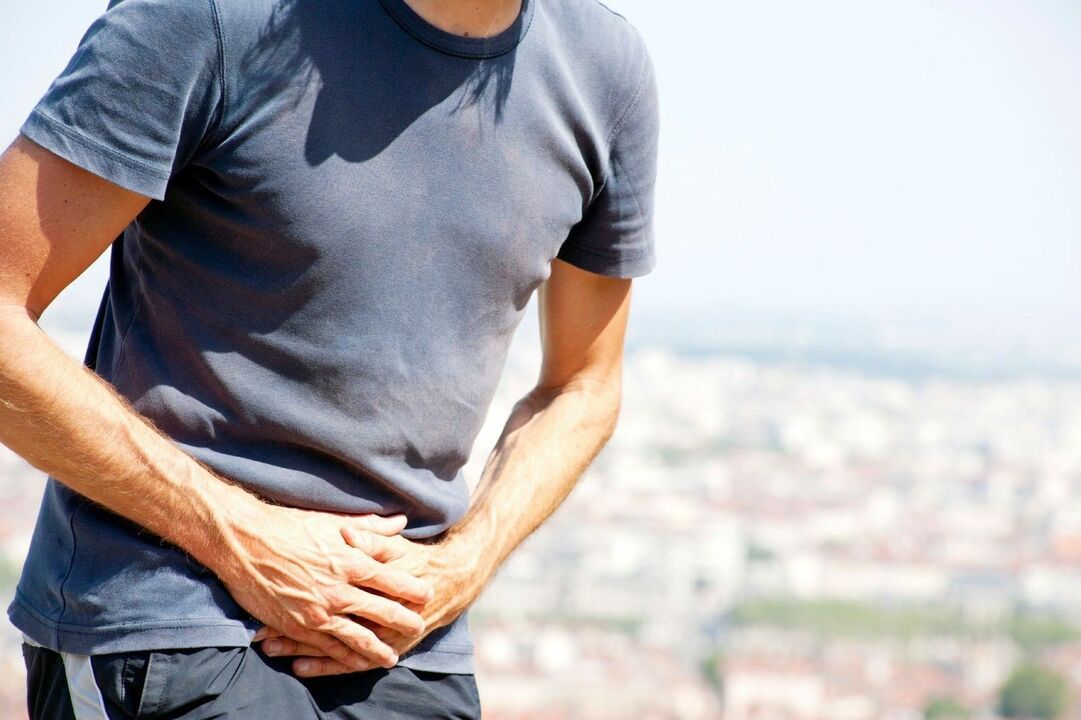
Prostate massage at home. Is massage always needed for prostatitis?
Prostate massage can also be done at home if you are married to a urology nurse. Any medical manipulation has its subtleties and nuances. Only a doctor can determine an indication for this procedure, so for some diseases: prostatic hyperplasia (in case of acute urinary retention), prostatic massage is undesirable and forTumors are contraindicated.
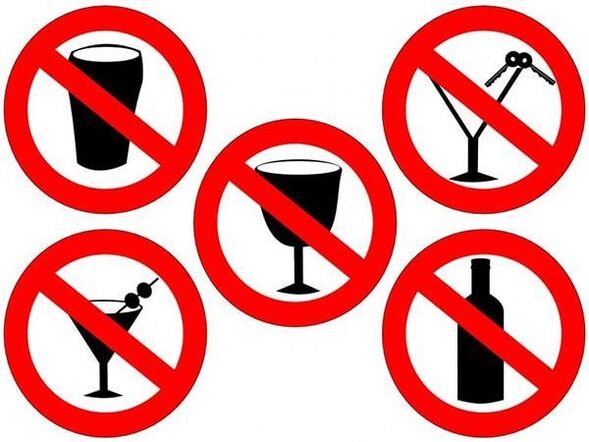
alcohol and prostatitis
Alcohol itself does not cause the development of prostatitis, but is a factor that increases the stagnation and swelling of the prostate gland and, therefore, contributes to its development.
Sex life and prostatitis
There is a direct relationship between the intensity of sexual activity and prostate disease. If abstinence is prolonged, stagnation occurs in the prostate gland, worsens metabolism, disrupts blood microcirculation, contributes to the development of inflammatory processes. Regularity is more important to prostate health than sex intensity. Having too much sex, especially with different partners and not being protected from infections, is the fastest way to prostatitis.

Does prostatitis affect women?
Of course, the effect on the health of a woman with prostatitis in her partner is there. The prostate gland together with the seminal vesicles make the liquid component of sperm, during intercourse, the sperm will enter the sexual tract of your partner. The main danger may be the presence of a sexually transmitted infection or bacterial prostatitis, which can cause inflammatory diseases in women.
Pregnancy and prostatitis
Because the prostate gland produces the liquid part of semen, which contains nutrients for sperm, often when prostate inflammation is present, sperm quality will decrease, making it difficult to get pregnant.

Prevent. What to do to avoid prostatitis?
Prevention is directly related to the climate in which the patient lives and his occupation.
Prostatitis prevention is about avoiding and minimizing the factors that contribute to the development of prostatitis. Hypothermia should be avoided, alternating sedentary work with periods of physical activity. It is important for prostatitis to have a regular sex life.
Prostate. What is it and how does her health affect male fertility
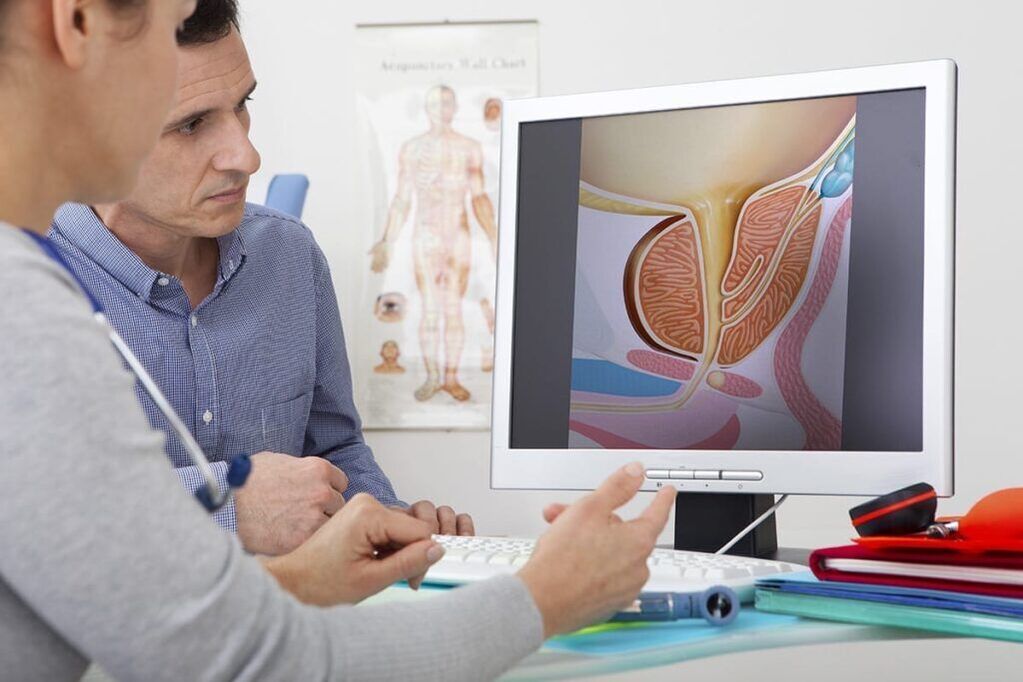
A diseased prostate gland is often the cause of many unpleasant ailments, making it difficult for men to have sex and even reduce fertility. Not to mention that every year in European countries, tens of thousands of men are diagnosed with prostate cancer.
Many men feel embarrassed about their prostate problems and don't see a urologist. Learn more about the prostate, its diseases, and its relationship to infertility in this article.
What is the prostate gland for?
The prostate gland, also known as the prostate gland, is small in size, about the size of a walnut, but has an extremely important reproductive function. The gland is located at the intersection of the urinary tract - below the bladder, right at the mouth of the urethra, moreover, it passes right through the center of this organ.
The prostate gland is a gland that, like sweat glands secrete sweat and liver secretes bile, the prostate gland secretes a substance that performs a specific function in the body. This substance is an opaque white liquid in semen. In other words, the bile secreted by the prostate gland is a part of sperm and performs a nutritional function. It is thanks to her that sperm is able to maintain the necessary parameters - quite viable and mobile.
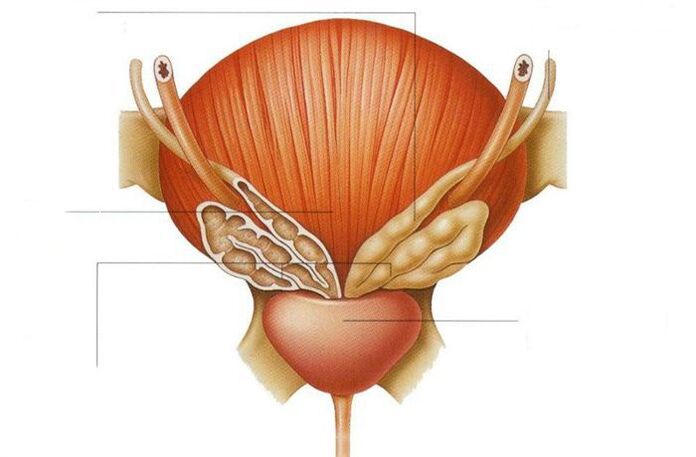
In addition, the protein PSA is formed in the prostate gland, which is involved in the fertilization process. Therefore, it is certain that male fertility largely depends on the condition of the prostate gland, and any problems with the prostate can make it difficult to conceive, as they are related. to a decrease in sperm parameters.
The size of the prostate changes throughout life
A baby boy was born with a prostate the size of a pea. Over the following years, the gland slowly increases to reach the correct size for an adult male around the age of 30. The prostate gland of a man "in full swing" is about 2. 5 cm high, 4 cm wide and 3 cm thick, and weighs 15 to 20 g.
30 years is a relatively stable period during which the prostate gland does not grow as rapidly as it once did. It rises again around the age of 45. This is due to a decrease in the level of male sex hormones, including the most important of them - testosterone.
When changing the size of the prostate gland, we are talking about the so-called benign prostatic hyperplasia, already at this stage can be accompanied by unpleasant symptoms.
Benign prostatic hyperplasia - what are the symptoms?
The most common symptoms that men with prostate cancer complain of are:
A man may also feel that his bladder is not completely emptied. In addition, urine can leak out of the bladder out of control.
All of these symptoms are the result of pressure from an enlarged prostate gland on the urethra, making it difficult for urine to drain properly. From there, stagnation of urine in the bladder can cause recurrent urethral infections, bladder infections and stone formation, and in the worst cases, possibly even kidney failure.
But the worst part is that the same signs are accompanied by other dangerous diseases - prostatitis and prostate cancer. That's why it's important for a man to contact a urologist as soon as he notices the first alarming symptoms.
Acute and chronic prostatitis mainly affects young men
Prostatitis can be of bacterial or nonbacterial origin. It can be caused by germs or a stagnation of secretions from the prostate gland. It mainly affects young men between the ages of 20 and 40.
- increased need to urinate;
- burning sensation when urinating;
- sometimes body temperature rises.
Treating prostatitis is not the easiest, as many antibiotics do not penetrate the prostate well.
Prostatitis is one of the main causes of male infertility. Strict treatment of this pathology is required.
Prostate cancer is another disease of the prostate gland.
In Europe, prostate cancer is one of the most common cancers in men. Every year in every country, doctors diagnose this disease for tens of thousands of people. This cancer affects about 30% of 50-year-old men and 80% of 80-year-old men. At the same time, it is the third leading cause of cancer death.
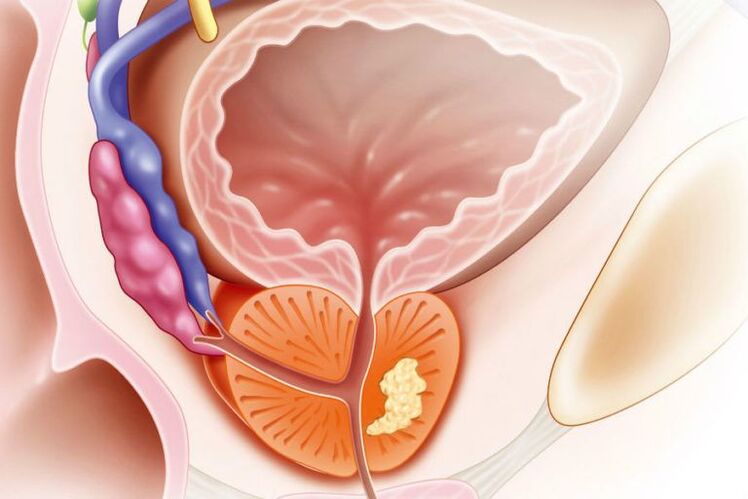
Prostate cancer
A characteristic feature of prostate cancer is that it grows quite slowly and often has no symptoms - at least initially. If symptoms are present, they are very similar to those associated with an enlarged prostate.
Are there any men at increased risk of this cancer? Right! Causes of prostate cancer will be obesity and sedentary lifestyle, untreated urinary tract infections, excessive sex as well as genetic factors.
Prostate cancer is curable with early detection. Unfortunately, many men skip an appointment with a urologist, often out of shame and fear of a painful and uncomfortable diagnosis. Meanwhile, just passing a few simple tests is enough to protect yourself from this dangerous disease.
Regarding fertility, with terminal prostate cancer, the possibility of infertility is guaranteed. Therefore, timely examination by a urologist is key to male reproductive health.
Prostate massage
Prostate massage is a useful urological manipulation aimed at maintaining male health. It helps to restore blood supply to the pelvic organs, normalize metabolism, improve tissue regeneration, increase the effectiveness of drug therapy, expel accumulated toxins and pus residues, increaseimmune resistance of the body and solve the problem of potency.
At a specialized medical facility, you can take a therapeutic prostate massage course to eliminate unpleasant symptoms or restore potency for a comfortable price. The procedure is performed by highly qualified urologists. The extensive experience of our specialists allows us to perform a delicate procedure with minimal patient discomfort. The cost of massage is calculated separately, depending on the patient's condition.
Purpose of therapeutic prostate massage
Massage therapy is an effective means of preventing the development of various diseases of the prostate gland (including cancer). It promotes the flow of prostate secretion, reduces inflammation, improves muscle tone.
This procedure eliminates discomfort and pain in the perineum, and also increases sexual activity and potency. It is often combined with drug treatment, making it more effective.
The price of prostate massage depends on the duration of the course, selected individually by the urologist of the medical center, depending on the patient's condition.
If you would like to schedule an appointment with a specialist or clarify the pricing of a service, use the feedback form or call the 24-hour phone number listed on the website. Our consultants are always ready to answer any questions as detailed as possible.
Indications for prostate massage
The main indication for prostatitis massage is diagnosed prostatitis of infectious or non-infectious origin. It is also prescribed for:
- chronic pain in the pelvic area;
- blockage in the prostate gland;
- genetic predisposition to prostatitis;
- erectile dysfunction due to pathology of the prostate gland;
- decreased male sexual activity.
The effectiveness of prostate massage for these problems has been confirmed by numerous clinical studies. Our patient tolerates this operation very well, as it lasts 1-2 minutes and is as painless as possible. The doctor always controls the pressure on the prostate, depending on how the man feels.
How is prostate massage performed?
Procedure result:outflow of prostate secretions
The patient is lying on his or her knees or lying on the side. The doctor puts on gloves and inserts a finger into the rectum to a depth of 4-5 cm, then gently massages the prostate until the secret begins to reveal.
In the case of chronic prostatitis, the doctor will prescribe a course of prostate massage. As a rule, it consists of 10 to 15 procedures, which are given at intervals of 2-3 days. After completing the course, rest is carried out for 2-3 weeks, after which the procedure is repeated.
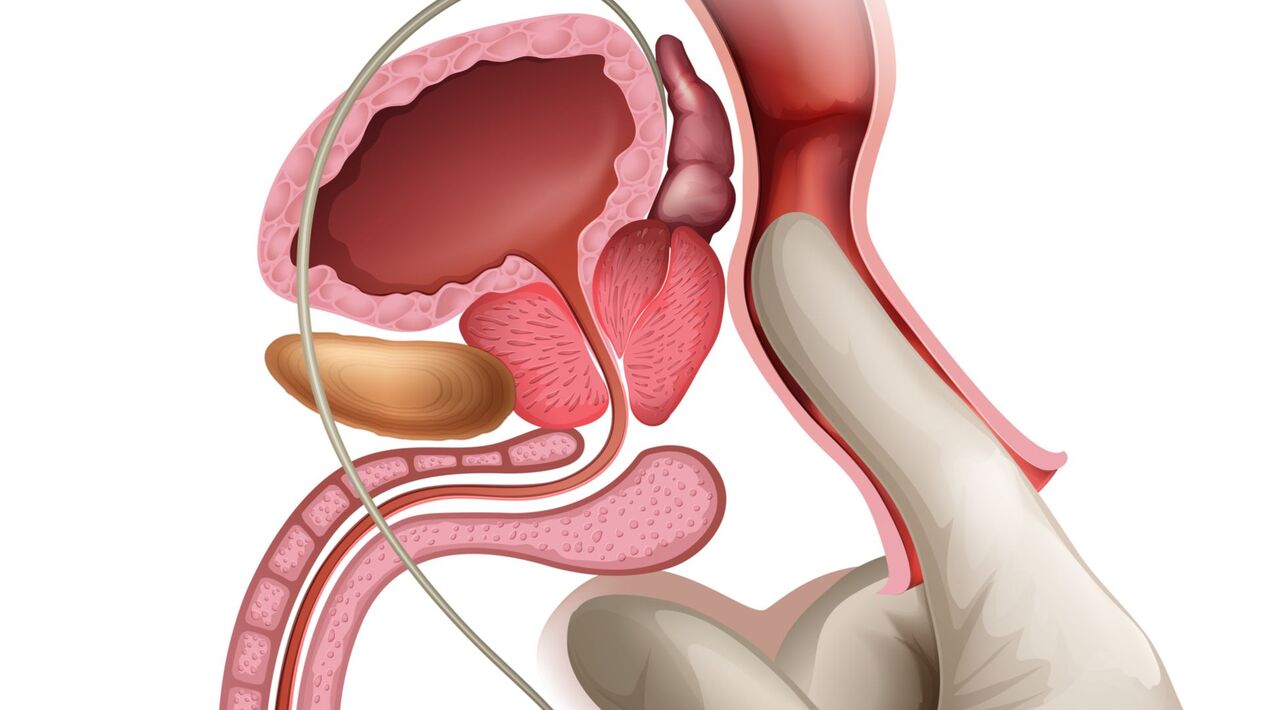
Useful information
In some cases, exposure to the prostate gland is undesirable. Manipulation is not carried out with acute bacterial prostatitis and other infections of the genitourinary system, with stones, abscesses, malignant tumors of the prostate gland, hemorrhoids, urinary retention.

























